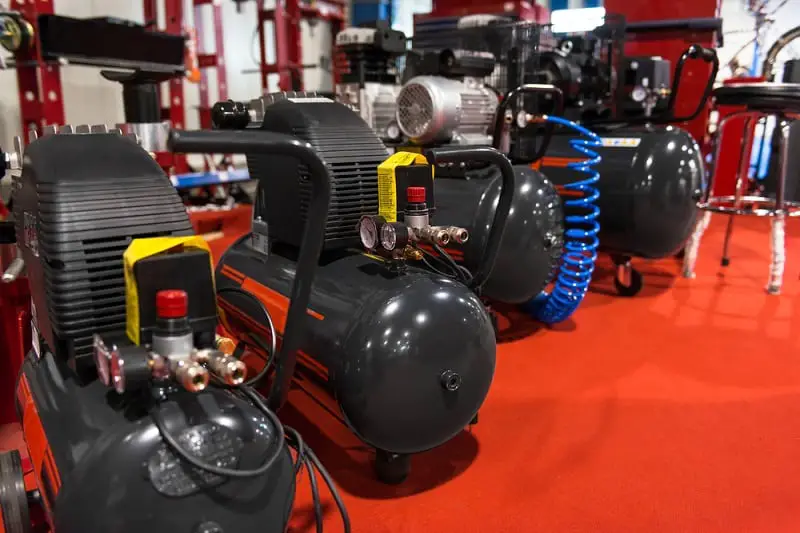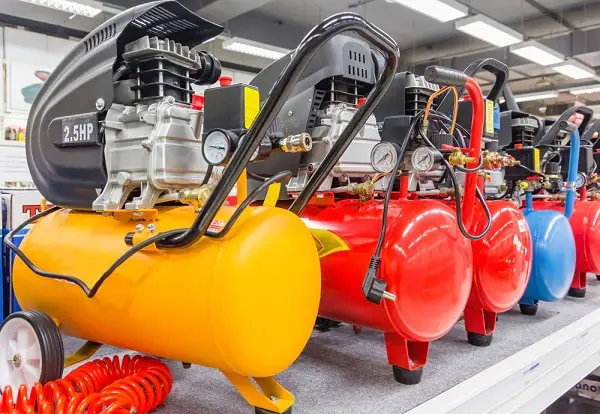
Choosing an Air Compressor That’s Right For You
As you probably already know by now, air compressors are extremely versatile works of machinery that have a wide range of applications and usefulness. If you’re a home improvement DIY type of guy/gal, an air compressor is a must. If you work in an auto shop or do a lot of auto repairs, it is bound to be one of your tools of choice. Even if you just need to do general house duties like cleaning the driveway or pumping air in your tires, an air compressor is bound to be your favorite tool in the shed.
However, not all air compressors are created equal. Manufacturers understand that air compressors are used in many different facets of everyday human life. Following suit, these manufacturers make air compressors that come in all shapes and sizes, have many varying applications, and harness various power capabilities. For example, an air compressor machine in a manufacturing plant will be much different (bigger and stronger) than the average air compressor machine you’d find in someone’s garage.
If you’re new to the air compressor world, this can result in you feeling confused and lost, unsure where to start and what to look for in the first place. Therefore, if you want to get an air compressor that’s right for your situation, it’s important to understand some key factors to consider. We’re here to help.
Let’s take a look at how to choose an air compressor that’s right for you. If you keep these factors in mind as you browse and shop, you’ll be sure to find the perfect air compressor for your situation.
What will you be using it for?
As mentioned above, air compressors are versatile pieces of machinery that can be used for many different applications. Because of that, it’s important to make sure that you buy an air compressor that fits your wants and needs.
Will you be needing the air compressor for general use, such as inflating tires and using small pneumatic tools? Or will you be needing an air compressor for heavier duty purposes, such as for use in automotive shops or industrial applications? There are several categories of air compressors to choose from, listed below:
- Portable air compressors: These smaller and portable air compressors are best for light-duty work, such as single person use with small air tools.
- Single-stage air compressors: As the name implies, these are stationary machines meant to be placed in one location. They are usually used in automotive shops, woodwork shops, facility maintenance buildings, and small businesses.
- Two-stage air compressor: If you have a need for more than one person to use the air compressor at a time, a two-stage air compressor is your best bet. These compressors are great for large multi-bay auto shops and general industrial settings.
- Rotary screw air compressors: These machines are high volume and high-performing, making them perfect for applications that may demand a consistent stream of air. As heavy-duty machines, rotary screw air compressors are usually used on an ongoing basis, being turned off only once the shop or facility is closed.
What kind of air tools are you going to use?
Just as not all air compressors are created equal, not all air tools are either. Some air tools will demand more air input than others, so it’s important to consider what tools you’ll be using and how much air they will need as you shop for your air compressor.
A good rule of thumb is to first find your tool that requires the greatest amount of SCFM (square cubic feet per minute). Multiply that amount by 1.5 or 2 to give your air compressor some wiggle room for possible future use of even heavier tools. When you shop for your air compressor, make sure that it offers a power level (CFM) at least equal to the amount required by your heaviest-duty tool.
Will you be using your air compressor frequently?
It’s also important to shop for an air compressor that meets your work demands time-wise. If you’ll be using your air compressor several days a week, for example, then opt for an air compressor with at least a 50/50 duty cycle. Contractor compressors and portable cast iron compressors are great options for this.
If you’ll be using your air compressor almost daily, then a heavier duty compressor will be needed, such as a single or two-stage compressor. In more demanding applications, a rotary screw compressor might be better suited for you.
You should also make note that some air tools will require a larger air supply which will require a larger air compressor. While getting an air compressor that can work as often as you need it to, make sure that it also works as hard as you need it to.
What power source will you be using?
You’ll want to make sure that your power source and plug type can support the air compressor you buy. As a general rule, most portable compressors come at 115-volts. Single-stage compressors are usually operated on 230-volt, and two-stage air compressors run on three-phase power. Make sure that the plug and voltage match what your home or shop can supply. If you don’t have a power supply, some air compressors even work on gas.
Do you have space for it?
Of course, you should make sure that the air compressor you buy can fit in the space you’ll be needing to use it in. Also, consider if you’ll need it to be mobile or not. Do you need the air compressor to be able to be rolled around easily, or will it be stationary? If you’re using a nail gun on the roof, for example, a portable air compressor is your best bet. If you have a space in your home woodworking shop where the air compressor can be placed, then a stationary machine may be better suited for you. An air compressor can be quite large depending on the type you need, so it’s important to make sure that your work area can accommodate your new piece of machinery.
Related Video:

